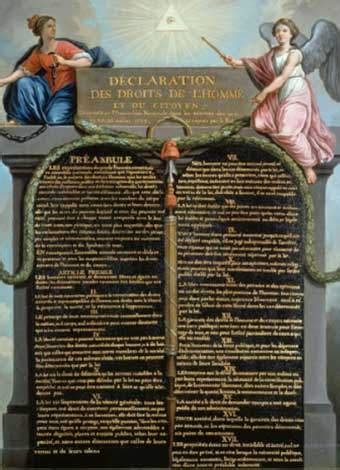The Declaration of the Rights of Man and of the Citizen, also known as the Declaration of the Rights of Man, is a foundational document in the history of human rights. Adopted by the National Constituent Assembly of France in 1789, this declaration enshrined fundamental principles that have had a profound impact on the development of democratic societies worldwide.

Historical Context
The Declaration of the Rights of Man emerged during a period of great social and political upheaval in France. The ancien régime, characterized by absolute monarchy and feudal privilege, was facing growing resistance from the bourgeoisie and lower classes. Inspired by the Enlightenment ideas of natural rights and individual sovereignty, the revolutionaries sought to establish a new, more just and equitable society.
Key Principles
The Declaration of the Rights of Man proclaimed several essential principles that became fundamental to democratic thought. These principles included:
- Equality before the law: All individuals are born free and equal in rights.
- Natural rights: Individuals possess certain inalienable rights, such as the right to life, liberty, and property.
- Popular sovereignty: The government derives its power from the consent of the governed.
- Rule of law: All citizens are subject to the law and are entitled to equal protection.
- Freedom of expression: Individuals have the right to express their thoughts and opinions freely.
Impact and Legacy
The Declaration of the Rights of Man had a transformative impact on world history. It served as a model for subsequent human rights declarations, including the Universal Declaration of Human Rights adopted by the United Nations in 1948. The principles enshrined in the declaration have been incorporated into the constitutions and legal systems of numerous countries.
Global Influence
The Declaration of the Rights of Man has influenced the development of human rights protections around the world. According to the United Nations, as of 2020, over 170 countries have ratified the International Covenant on Civil and Political Rights, which embodies many of the principles enshrined in the Declaration of the Rights of Man.
Table: Key Articles of the Declaration of the Rights of Man
| Article | Description |
|---|---|
| Article 1 | All human beings are born free and equal in dignity and rights. |
| Article 2 | Human rights are inalienable and cannot be taken away. |
| Article 3 | The nation is the source of all sovereignty. |
| Article 4 | No one may be deprived of life, liberty, or property without due process of law. |
| Article 5 | Freedom of expression, press, and religion are guaranteed. |
Table: Impact of the Declaration of the Rights of Man on Democratic Societies
| Impact | Description |
|---|---|
| Establishment of democratic principles: The declaration provided a blueprint for governments based on the consent of the governed. | |
| Expansion of civil liberties: The declaration expanded the rights of individuals, including freedom of speech, assembly, and religion. | |
| Protection of minorities: The declaration sought to protect the rights of minorities and prevent discrimination based on religion, race, or social status. | |
| Global influence: The declaration inspired similar documents in other countries and contributed to the development of international human rights law. |
Table: Challenges to the Declaration of the Rights of Man
| Challenge | Description |
|---|---|
| Balancing individual rights and societal needs: Governments must strike a balance between protecting individual rights and ensuring public order and safety. | |
| Enforcing rights in practice: Despite the declaration’s principles, human rights violations continue to occur in many parts of the world. | |
| Cultural and religious differences: The declaration’s principles may conflict with the cultural or religious values of some societies. | |
| Political manipulation: Governments may exploit the declaration to justify authoritarian practices or restrict dissent. |
Conclusion
The Declaration of the Rights of Man remains a landmark document in the history of human rights. Its principles have shaped the development of democratic societies worldwide and continue to serve as a beacon of justice and equality. While challenges persist in implementing and upholding these rights, the declaration serves as a reminder of the fundamental rights and freedoms that all individuals deserve to enjoy.
